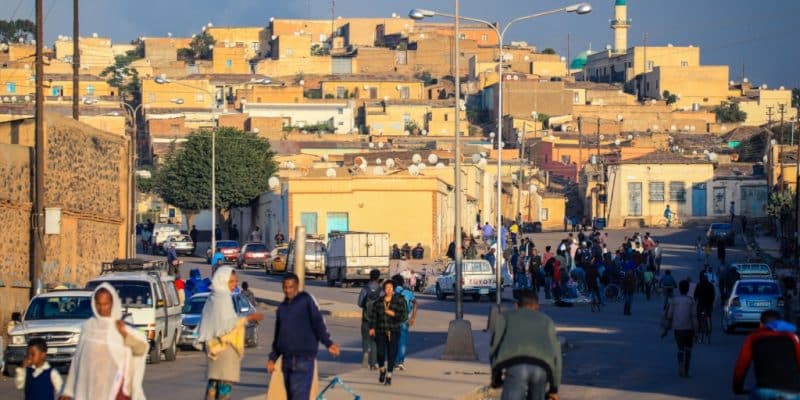As the fourth session of negotiations for a global treaty to end plastic pollution gets under way in Ottawa, Canada, on 23 April 2024, AFRIK 21 wonders what positive impact the adoption of this treaty will have on Africa, and in particular on Eritrea, the world's worst performer in terms of plastic waste management, according to a recent Plastic Overshoot Day report.
Plastic Overshoot Day, the initiative run by the not-for-profit arm of EA – Earth Action, based in Lausanne, Switzerland, has just published a report on poor plastic waste management practices around the world. According to the document, Eritrea is the country with the highest poorly managed waste index (IMS) in the world, at 97.3%. “This is a measure used to quantify the amount of plastic waste that is not properly managed in an area and therefore ends up in the rubbish bin,” the report states. In 2024, Plastic Overshoot Day estimates that around 90,954 tonnes of plastic waste will be poorly managed in this East African country, out of the 93,444 tonnes produced in the same year.
The Earth Action initiative ranked Eritrea among the 42 African states (out of 54) where 78% to 97% of the plastic waste produced is poorly managed. Other African countries include the Central African Republic-RCA (95.9%), Guinea Bissau (95.6%), Ivory Coast (95.5%), Malawi (95.5%), Mozambique (94.9%), Ethiopia (94.8%), Mali (94.3%), Sierra Leone (94.2%), Madagascar (93.9%) and even Rwanda (93.4%). Together with Eritrea, these countries top the Plastic Overshoot Day list, with the other 32 African countries not far behind. In all, 81 countries around the world were ranked with a poorly managed plastic waste index.
The causes of this poor management of plastic waste range from a lack of regulations and infrastructure to a lack of public awareness, leading to pollution. “In 2024, 31.5% of the plastic produced and used will be poorly managed as waste and will probably end up in the air, water or soil of the Earth, i.e. some 69,528,927 tonnes of additional plastic waste”, says Plastic Overshoot Day.
Will the adoption of the Global Treaty against Plastic Pollution be able to address this problem?
The report also makes a number of recommendations for improving plastic waste management in these countries, including reducing plastic consumption and use, promoting circular economy models such as repair and reuse initiatives, implementing solid waste management policies such as Extended Producer Responsibility (EPR), improving local waste management infrastructure and stopping the import of plastic waste from other countries.
Read Also – AFRICA: States to vote on a global treaty on plastics
African countries and the rest of the world will also have their eyes riveted on Ottawa, Canada, where the fourth session of negotiations for a global treaty to put an end to plastic pollution opens on 23 April 2024 and closes on 29 April. Perhaps the solution to this global problem will come from there?
This final round of negotiations should result in a binding text containing measures that take into account the entire life cycle of plastics, from their production and consumption to their end-of-life. Once the text has been finalised, Member States will be invited to ratify it to ensure more sustainable plastics management.
Inès Magoum






